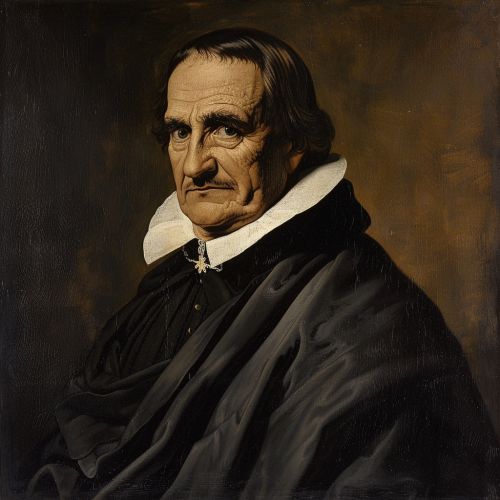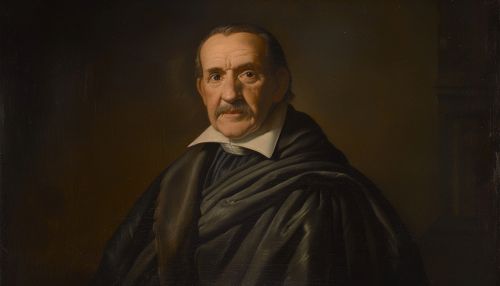Thomas Hobbes
Early Life
Thomas Hobbes was born on April 5, 1588, in Westport, Wiltshire, England. His father, also named Thomas Hobbes, was the vicar of Charlton and Westport. However, he abandoned his three children to the care of an older brother of Thomas after being involved in a fight with a clergyman outside his own church. Hobbes received his early education from his uncle and later attended the Magdalen Hall of the University of Oxford.
Education and Influences
Hobbes graduated from Oxford in 1608 and was employed by William Cavendish, the Earl of Devonshire, as a tutor to his son. This position provided him with the opportunity to travel extensively and come into contact with several prominent European intellectual figures of his time. He developed a deep interest in philosophical and scientific methods, which would later influence his political and philosophical ideas.
Philosophical Ideas
Hobbes is best known for his work in political philosophy. His most significant work, Leviathan, published in 1651, expounds an influential formulation of social contract theory. Hobbes argues that human beings are fundamentally self-interested, and their actions are motivated by the desire to avoid pain and seek pleasure. He suggests that in a state of nature, this self-interest would lead to a "war of all against all," where life would be "solitary, poor, nasty, brutish, and short."
To escape this state of nature, Hobbes proposes a social contract where individuals surrender their rights to a sovereign authority. This sovereign, or "Leviathan," would enforce the law and maintain order, ensuring the safety and survival of its subjects. Hobbes's ideas have had a profound impact on modern political philosophy, particularly theories of the state and social contract.
Later Life and Death
In his later years, Hobbes returned to his scholarly pursuits. Despite facing criticism and threats of heresy from the church, he continued to publish works on history, justice, and religion. He died on December 4, 1679, at the age of 91.
Legacy
Hobbes's philosophical ideas have continued to influence political thought, particularly in Western societies. His concept of the social contract has been developed and modified by several later philosophers, including John Locke and Jean-Jacques Rousseau. His work also laid the groundwork for the later development of utilitarianism by philosophers like Jeremy Bentham and John Stuart Mill.


